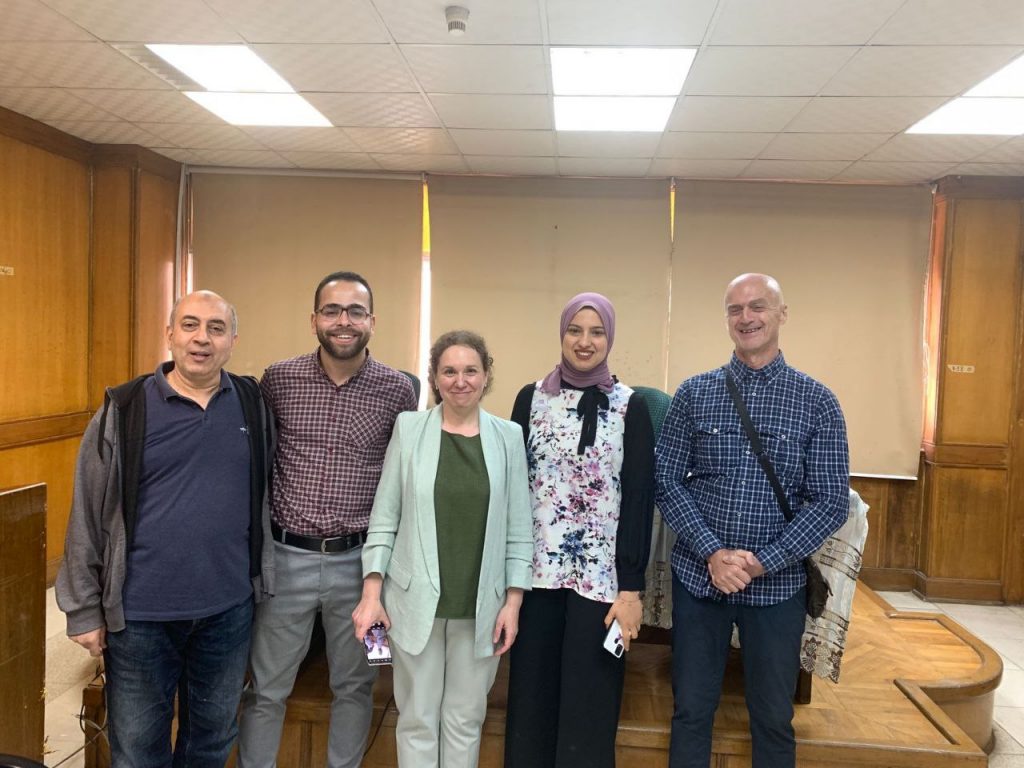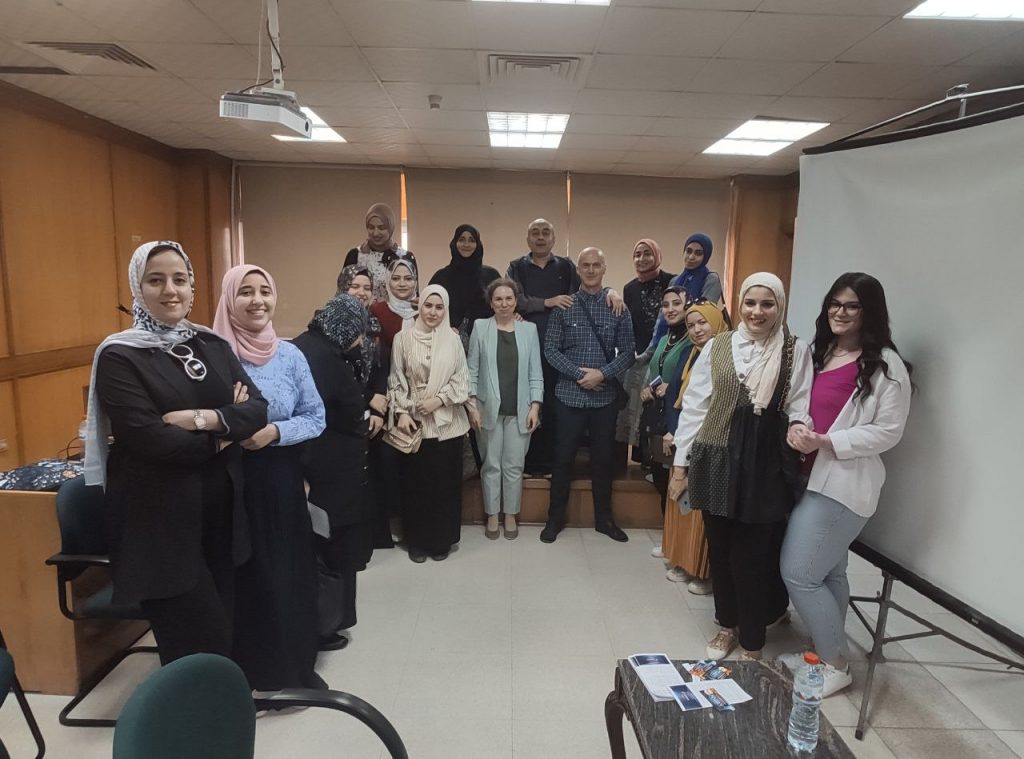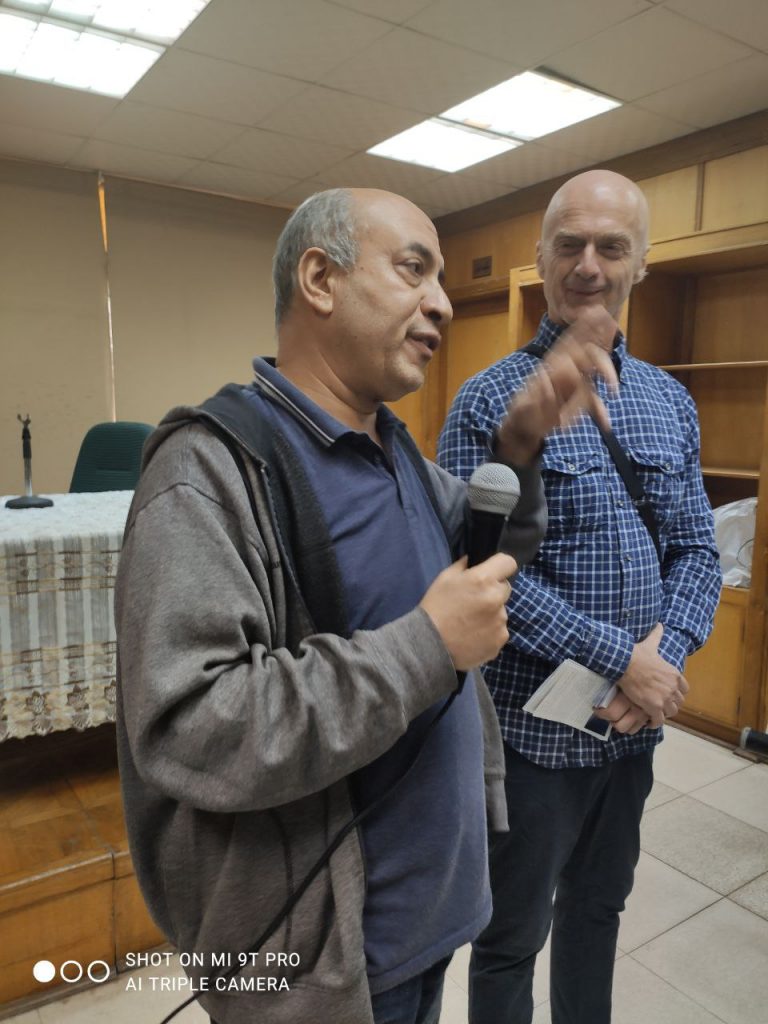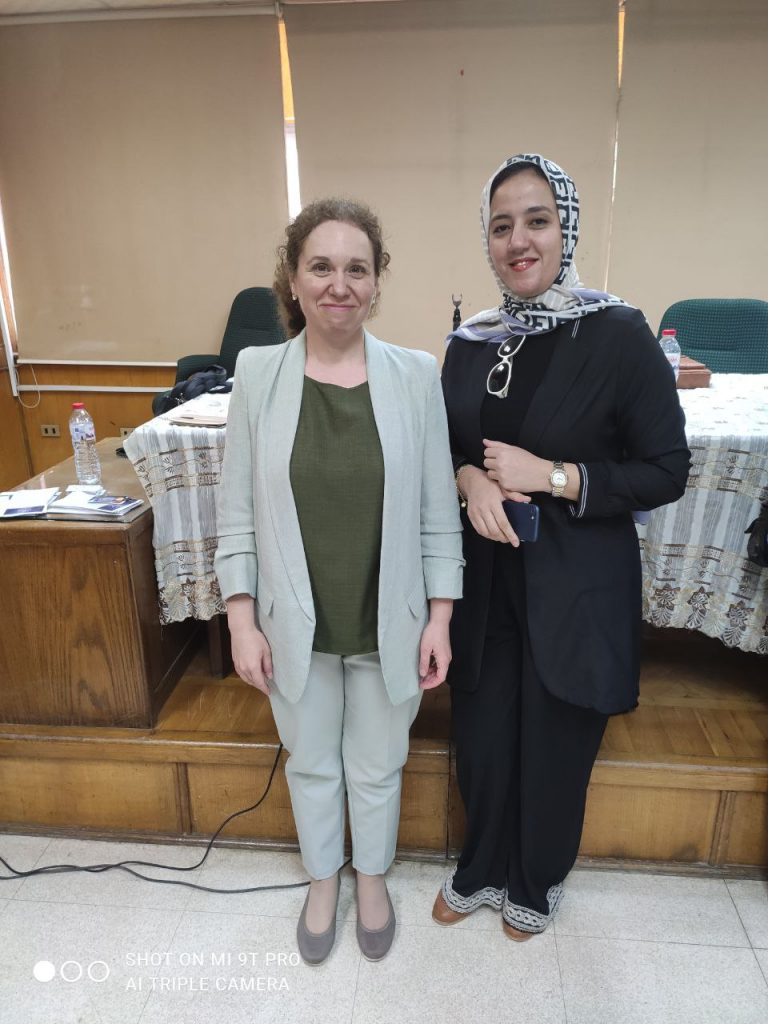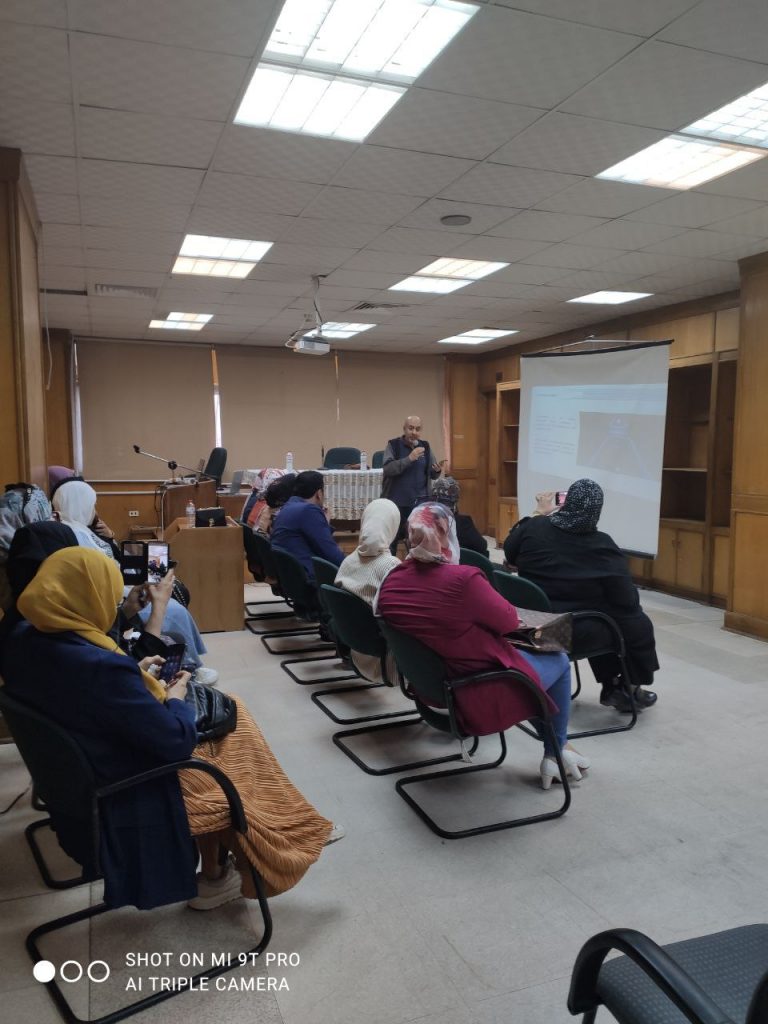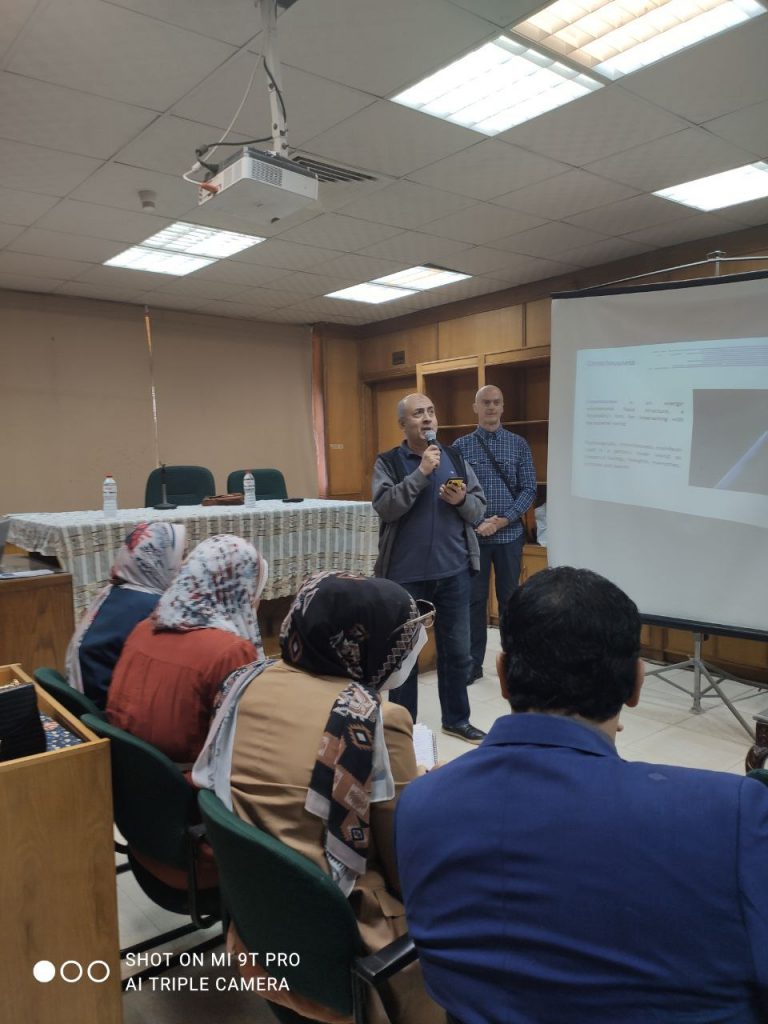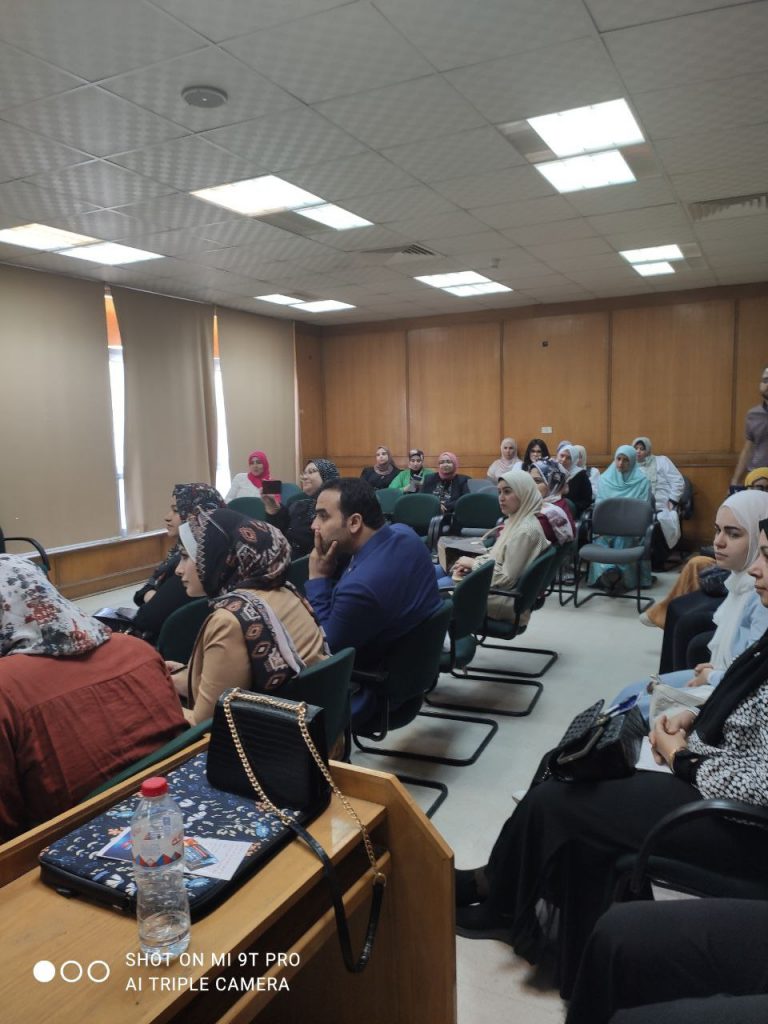IASGA members held a workshop at Zagazig University, Egypt on 11 May 2023 on the topic:
Innovative approaches in psychology and psychotherapy based on the knowledge of human being dual nature.
This workshop was held in the run-up to the International Conference on Spiritual Values & Mental Health, which took place later on 11-12 May in Portsaid, Egypt.
Based on the described approach, IASGA participants developed and successfully applied psychotherapeutic methods, including for the treatment and rehabilitation of people with internet gaming disorder, gambling disorder, social media addiction and other kinds of information behavioural addictions.
During the workshop there was a presentation of the International Creative Society Project. The IASGA is an information partner of this project and sees in its implementation a major opportunity for a qualitative and long-term solution to the problem of games and social media addictions, as well as other technological addictions.
Speakers:
Dr. Tetiana Zinchenko, Ph.D., psychotherapist, psychiatrist, psychologist, rehabilitologist, President of the International Association for the Study of Game Addictions (IASGA), Switzerland.
Stanislav Hohel, psychologist, writer, and humane evolution facilitator. Author of 6 books in developmental psychology and personal growth, Kiev, Ukraine.
MD. Ahmed Abdalla, psychiatrist, professor of the psychiatry department at Zagazig University, Egypt.
Workshop abstracts
It is not about introducing a new direction, but we are talking about the need to revise the very foundation of psychology and psychiatry, as a field of science. At the moment, we must admit that we do not have a holistic understanding of what a human’s true individuality is — what the Personality is and how it develops, what the nature of human consciousness and subconsciousness are. How is the brain related to the functioning of the psyche (consciousness and subconsciousness)? What is the nature of thoughts? Does the brain produce mental processes in the form of thoughts, emotions and desires or only interact with consciousness – perceives and transmits signals to the body and conversely, i.e. is it a perceiving – transmitting device? At present, modern science cannot answer these questions. There are only hypotheses, some of which postulated as axioms, although they do not have a serious evidence base or confirmation by practice. In this regard, a new integrated approach is needed, since psychology and psychiatry are in a deep crisis.
According to the official WHO statistics, every 4th-5th person in the world suffers clinically from some kind of mental disorder and 20% of children and adolescents. About 10-14% of adults suffer from severe mental illnesses, such as clinical depression, bipolar disorder, schizophrenia, and neurodegenerative diseases. Every 40 seconds someone in our world dies by suicide. Taking into account the so-called borderline disorders: anxiety disorders, somatoform dysfunctions, post-traumatic stress disorder, adjustment disorders, and various forms of addiction, the prevalence reaches 38.8 – 46.3% in the general population throughout people’s lives. First of all, this applies to depression, generalized anxiety disorder, and various addictions, both substance and behavioural.
More and more psychotropic drugs are produced annually (the annual reference guide for these new drugs reaches 3cm thick), but the number of mentally ill people is still increasing. Drug therapy does not lead to their cure, but only to temporary and partial relief of the condition and chronization of the process. However, even this temporary relief in most of our patients is accompanied by severe side effects and an increased risk of developing neurodegenerative diseases in the future. Modern psychotherapeutic techniques, the number of which is also increasing annually, do not improve the overall global picture. Of course, many questions arise.
Psychology did not emerge as a separate scientific discipline until the mid-nineteenth century, although the issues it deals with have been studied since antiquity. In fact, it was during this period that a radical change in the vector of the study of human as a social being took place, from the spiritual to the materialistic foundations. The main subject of study, instead of the spiritual component of human, became his material component: the brain and mental functions. Thus psychology – the science of the Soul – was deprived of the opportunity to study the spiritual dimension of the human being and his duality. Nowadays, thanks to numerous interdisciplinary studies, both instrumental and clinical, we are regaining lost knowledge about the duality of the human being and the nature and essence of our consciousness. However, this knowledge is already based on a solid scientific foundation.
The main aim of this workshop are not only to form a theoretical knowledge, but also to have a practical experience of realising one’s duality.
- To recognise oneself as an Observer of all manifestations of consciousness: thoughts, emotions, desires and to discover, feel in oneself the true source of the highest human feelings: sincere gratitude, inner freedom, love, and kindness. It is namely this potential ability for impartial observation, the freedom to be outside of the animal mind system makes the Personality 100% responsible for its every choice. In other words, a human at any time can change the outlook and abandon any egocentric programs. For example, he can get rid of the patterns of pessimistic thinking, a habit of assessing and condemning everything, making claims, constant worrying about the future or regretting the past.
- Numerous studies of the content of thoughts show that consciousness in automatic mode is not at all friendly towards humans, and is often even aggressive and consumerist towards them, moreover, it constantly distorts reality. As a result of a self-analysis experiment, you will see for yourself that our minds are dominated by thoughts are negative in content (criticizing, condemning, suppressing, evaluating, escalating anxiety and anger, etc.), self-centered, unproductive and false, that is, they distort reality and do not reflect it. Thoughts are not our own and we have no control over them because we cannot voluntarily stop the flow of thoughts or focus on one image, object or sensation for long periods of time.
- One of the most important things is to make sure that consciously from an Observer’s position, by controlling our attention, we can tune the workings of our consciousness in a productive, constructive and objective way. Today, according to modern scientific discoveries in the field of psychology and neurophysiology, it is reliably known that it is not the situations themselves and life circumstances that determine our emotional reactions, but mental interpretations, that is, attitudes towards certain events. And the emotions that have already arisen govern neurotransmitter and hormonal changes in the body as a whole that are peculiar for stress and distress. In other words, negative thoughts triggering destructive experiences are not a given, but it is a choice. We cannot stop thoughts, but we can choose how and what to think about and whether to think at all, and a person does it by switching attention.
